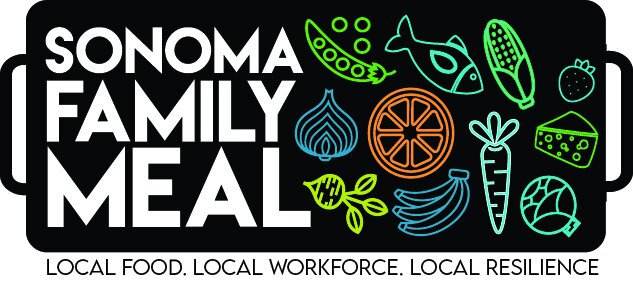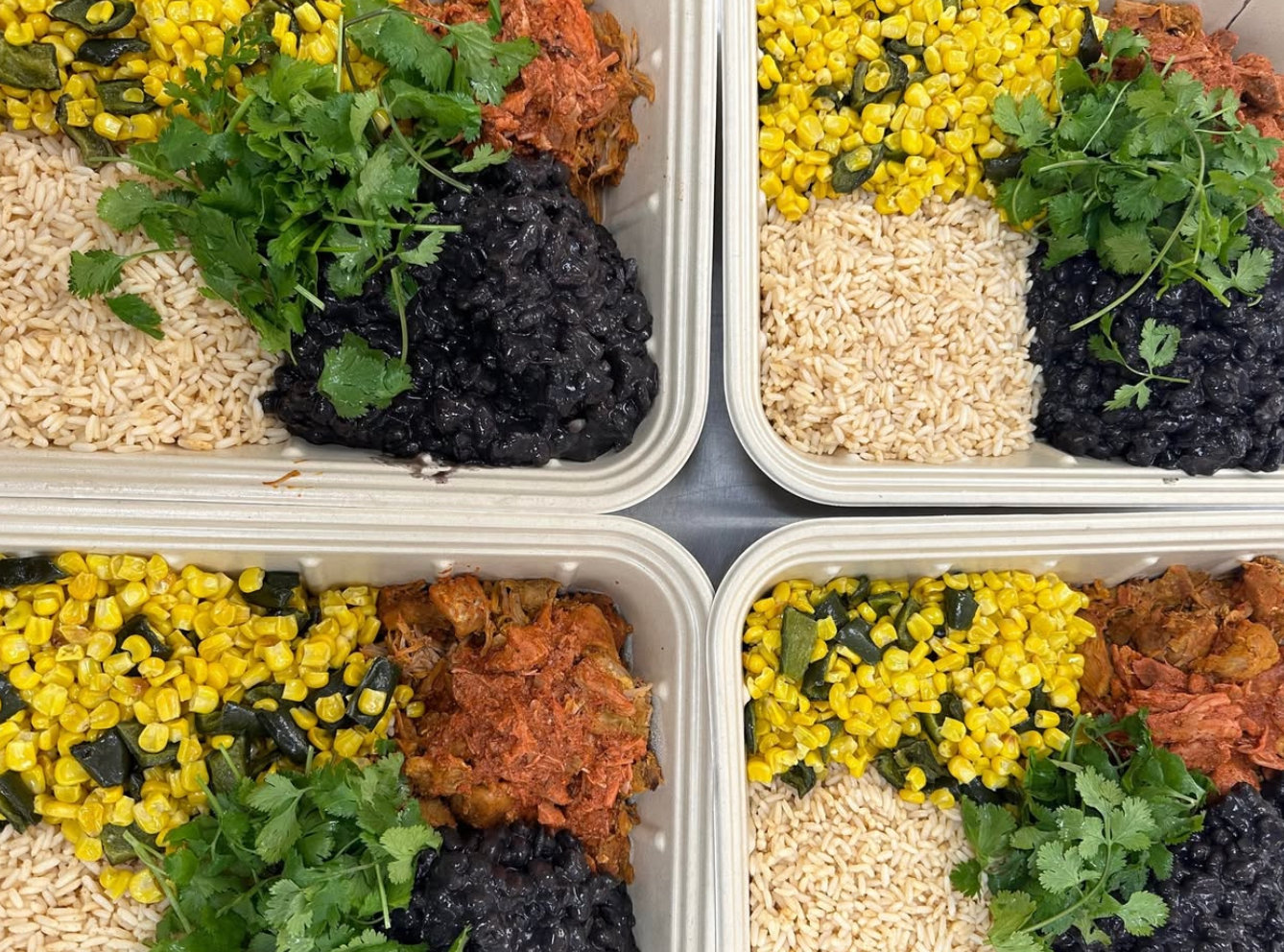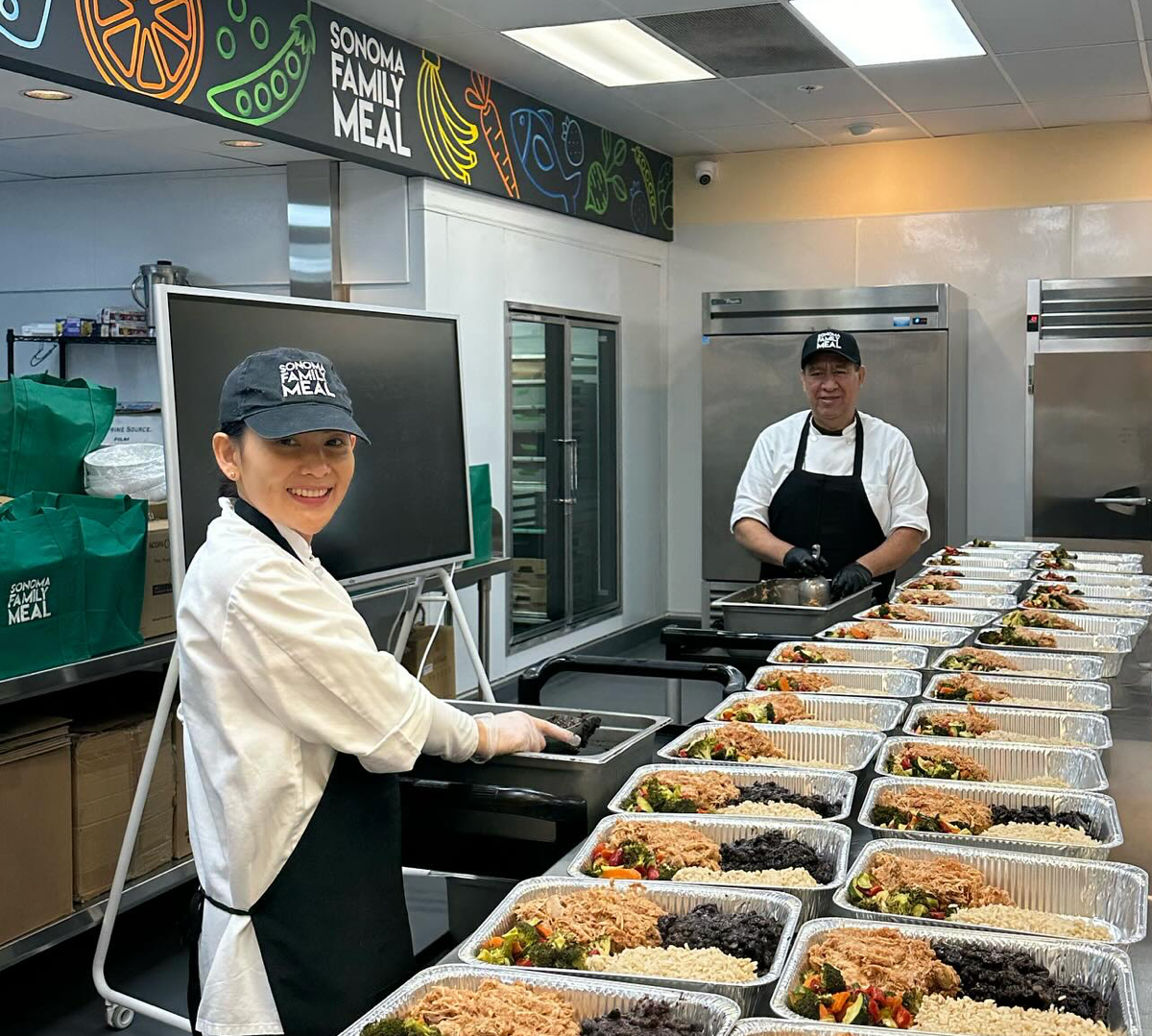Sonoma County Food Insecurity Program
Comforting, wholesome, chef-made meals in times of crisis and stability.
Across Sonoma County, families and seniors face food insecurity due to job loss, wildfires, health challenges, and other disruptions. Sonoma Family Meal responds by doing what we do best: preparing comforting, chef-made meals.
Each month, our Petaluma and Sonoma Valley kitchens prepare and deliver approximately 7,000 fresh, family-style meals to neighbors experiencing food insecurity.
Our program focuses on providing oven-ready meals that reduce stress for families in crisis and ensure seniors have access to nutritious food. Meals are distributed through trusted community partners, including the Petaluma McDowell Family Resource Center, ELIM, CURA, and others.
More Than Just Meals
When we say we’re nourishing the community, we mean it in more ways than one.
Preparing these meals provides hands-on job training and work experience to our Culinary students as they learn how to cook in our Petaluma and Sonoma Valley kitchens.
We support local food businesses by developing their workforce and training hard-working, dedicated people to work in the food service industry, strengthening the local food economy as a whole. We rescue food that would otherwise go to waste through partnerships with local organizations, farmers, and food-producers like ExtraFood, FEED Sonoma, Farm to Pantry, Petaluma Bounty, and more - and turn it into something nourishing.
So when you sit down with one of our meals, you’re not just tasting the impact of our job training programs, you’re supporting and strengthening an entirenetwork of farmers, businesses, students, families, and more.
Fighting Food Waste, One Meal at a Time
Californians discard the equivalent of 2.5 billion meals each year, while 1 in 5 Sonoma County residents experiences food insecurity.
Food recovery bridges that gap.
Food Recovery in Action
Food recovery has been central to Sonoma Family Meal since 2017. What began as collecting donated produce during wildfire response has grown into a formal weekly recovery program.
Today, we partner with local farms and food businesses to redirect surplus food into nourishing meals. With support from Zero Waste Sonoma and partners such as ExtraFood, Windrift Farm, Stemple Creek Ranch, and Della Fattoria, we keep food out of landfills and on dinner tables throughout the county.
How It All Connects
Our Food Insecurity Program works because our services are designed to support one another:
Culinary Job Training prepares individuals for food industry careers, and students often help prepare community meals.
Catering With A Cause allows events to directly support food security and job training.
Community Cooking Classes invite the public into our kitchens while funding programs.
Together, these efforts create a cycle that strengthens people, businesses, and the local food ecosystem.
Why This Sonoma County Food Insecurity Program Matters
Food insecurity affects health, stability, and well-being. Our approach addresses immediate needs while building long-term solutions by:
Expanding access to nourishing food for families and seniors
Reducing food waste to support sustainability
Creating job pathways that strengthen economic stability
Be Part of the Change with Sonoma Family Meal
Every meal we prepare is possible because of people like you, volunteers, donors, and supporters who believe in a stronger, more sustainable and resilient Sonoma County where everyone has a seat at the table. Whether you donate your money or time, or choose our catering services, you’re making an impact that goes far beyond the dinner table.
At Sonoma Family Meal, we know food is more than fuel. It’s comfort, dignity, opportunity, connection, and community. And we’d love for you to join us in bringing that to our neighbors who need it most.
Call us at (707) 978-2340 or contact us online now and learn how you can be a part of the change!
Our Food Partners










FAQ – Common Questions About Our Program
-
Sonoma Family Meal prepares and delivers around 7,000 fresh, nutritious meals each month to low-income families and seniors in Sonoma County. When disaster strikes, we mobilize all our operations toward feeding people displaced and service workers as well.
-
We partner with local farms, businesses, and food producers to rescue surplus produce and ingredients, transforming them into chef-prepared meals that fight food insecurity and divert food from the landfill.
-
Our food security program serves vulnerable groups including low-income families, seniors, people experiencing houselessness, disaster survivors, and other at-risk residents across Sonoma County, ensuring they have access to healthy, locally sourced meals.














